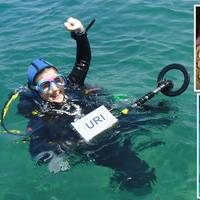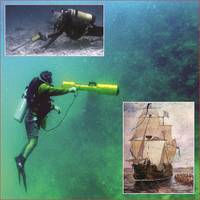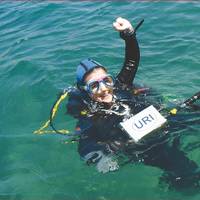Divers Find 2,000 Priceless Gold Coins

Scuba divers have found the largest cache of gold coins ever discovered in Israel working on wreck site in the ancient harbor of Caesarea on the country's Mediterranean coast, reports the Israeli Antiquities Authority (IAA). The treasure trove of 2,000 coins weighs more than 20 pounds and dates back more than 1,000 years to the era of Fatimid Caliphate, which ruled much of the Middle East and North Africa from 909 to 1171. “It is probably the shipwreck of an official treasury boat which was on its way to the central government in Egypt with collected taxes…
Historic Great Lakes Shipwreck Possibly Discovered

Steven Libert, president of the Great Lakes Exploration Group, announced he has located what is believed to be the remains of Le Griffon, the first European ship to have sailed the upper Great Lakes. The 45-ton barque carrying seven cannons was built by the legendary French explorer Rene-Robert Cavalier, Sieur de La Salle who was attempting to establish a Northwest Passage through Canada. La Salle wanted to provide a faster way to connect France with its trading partners in the Far East and Le Griffon was to be a vital link in the route between Niagra and Illinois.
Archaeologists Go Deep to Uncover History

Many universities are adding or expanding their underwater archaeology programs in an effort to give students a broader educational experience and a better understanding of our maritime history. The field of underwater archaeology is expanding rapidly as the equipment required for marine exploration becomes more affordable, and more scientists and researchers learn to scuba dive. Indiana University (IU) Bloomington has one of the oldest academic diving programs in the country.





